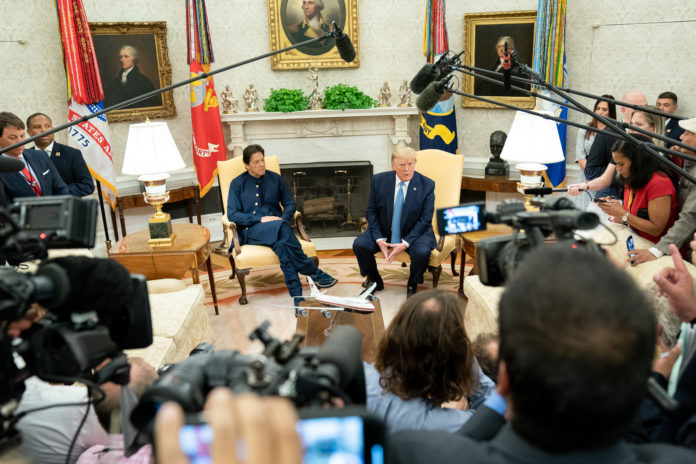Pakistan is once again courting an unpredictable ally. Pakistan-US relationship is historic, enduring and wide-ranging yet it has always had an underlying roller coaster signature tune that has an inbuilt undercutting as well as self-healing mechanism. Prime Minister Imran Khan visited United States from 21st to 23rd of July. He held talks with US President Donald Trump, interacted with Congressional leaders and addressed a think tank. Imran and his team went to the White House with lot of scepticism on the back of their minds, and returned with an outcome that Pakistan would be pretty glad with. The Afghan peace process remained at the top of the agenda.
The visit was not only watched closely by many Pakistanis back home but also in India. Influential Indian lobby in Washington and some dissident Pakistanis who are always eager to play as spoilers. But they had been catered for during summit preparation by Pakistan’s foreign office.
Michael Kugelman, a senior associate working on South Asia at the Washington-based Wilson Center, summed up Imran-Trump meeting in his following tweet: “At any rate, my main takeaway is that Trump’s comments here, for the most part, are exactly what Pakistan wanted to hear. An unintended PR win for Islamabad.”
Express Tribune editorially commented on the visit, on July 24, under the caption: “Regaining prestige and status”, excerpts:
“It was a great day in the chequered history of the Pakistan-US relations, and greater in the political life of Prime Minister Imran Khan who saw the world’s sole superpower conceding to his long-sustained argument that there was no military solution to Afghanistan problem. It was for the first time in many years that the Pakistan government, its military establishment and America seemed to be on one page in developing consensus on the issue of Afghanistan The demeanour and the body language of Imran Khan was neither timid nor yielding, and the conduct of President Donald Trump indicated a clear-cut and comforting shift in the US policy relating to Pakistan nothing could be more consoling and satisfying for Pakistan than the US President offering to mediate over the Kashmir conflict In August 2017, President Trump had stopped $900 million security assistance to Pakistan accusing it of aiding militant groups hostile to the US and Kabul. The US administration had also pushed for Pakistan to be added to the grey list of the Financial Action Task Force (FATF) on money-laundering and terror-financing. “I think we have a better relationship with Pakistan right now all of that (financial assistance) can come back, depending on what we work out,” said President Trump hinting at the possibility of restoring the financial [and] security assistance”.
Imran Khan’s walk into the White House marked the culmination of hectic behind-the-scene diplomatic efforts spanning many months for arranging the summit. Reportedly, the Saudi Crown Prince was instrumental in persuading President Donald Trump to extend the invitation. From American perspective, main focus of the visit was Afghanistan with some cosmetic sweeteners for Pakistan; and from Pakistan’s perception, focus was on what all it could also achieve in the context of Pakistan-India perspective. Both America and Pakistan could have a euphoric sigh as both these perspectives have been addressed, even though notionally. Summit did serve some useful purposes beyond symbolics.
Some positivities were injected from both sides prior to the summit, these included polling for elections on 16 seats of erstwhile FATA, American nod to IMF for rolling out of US$ 6 billion facility and arrest of Hafiz saeed by Pakistan. Trump tweetered to express joy over arrest of Hafiz Saeed: “After a ten year search, the so-called “mastermind” of the Mumbai Terror attacks has been arrested in Pakistan. Great pressure has been exerted over the last two years to find him!”
The prime minister was advised to tread carefully as the world would be watching and any misstep could undermine the summit. PM said he was “inundated with suggestions from all quarters” about what to discuss with the US President. Railways Minister Sheikh Rashid, who is known for his quips had, before the prime minister’s visit remarked: “Both Imran and Trump are same. God help us, I am scared.” His statement was meant to suggest that given the unpredictability of both the leaders, anything could happen. Amid this backdrop, when the PM finally stepped inside the White House and was greeted by President Trump, the other members of the Pakistani delegation were anxious. Even Imran visibly looked more cautious.
A host of issues were discussed by the two leaders as efforts were made to improve bilateral relations which had nose-dived following Trump’s ugly New Year tweet in 2018. However, not much appeared formalised during the summit, and some of Trump’s commitments started falling apart soon after Imran Khan stepped out of White House. There was no joint communique; a small statement by Pakistan’s Foreign Office lacked substance and was round about; while the US State Department’s comments indicated that there was not even a symbolic shift in the longstanding US policy towards Pakistan and this region; mostly previously held US positions were reemphasised.
A new conflict is fermenting in Pakistan’s neighbourhood as tensions between Iran and United States have escalated in the past few months. If the tensions escalate further, whole region could get sucked in to another black-hole category armed conflict. Pakistan is weary of a notorious combat zone along Pak-Afghan border and it could no longer afford another active combat zone along Pak-Iran border. Earlier Pakistan had made an offer to Iran that it could make an effort to cool down the things. Though matter did not surface in the public domain, it would be naïve to assume that it was not discussed. And certainly the PM must have assured Trump of what all Pakistan could do to deescalate the situation as Pakistan understands the complexity of the US-Iranian relationship, and has the requisite leverage to contribute.
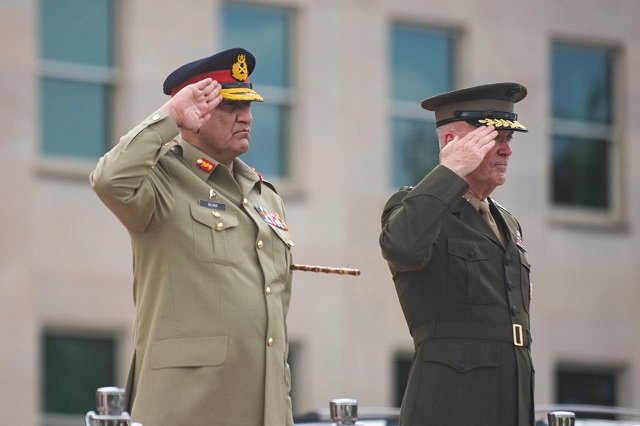
The two leaders first jointly addressed the press and later had one-on-one meeting, which was followed by delegation level talks between the two sides. Two leaders held comprehensive discussions with a focus on building a broad-based and enduring partnership between Pakistan and the United States and strengthening cooperation between the two countries to bring peace, stability and economic prosperity in South Asia. They reviewed progress of the Afghan peace and reconciliation process. Prime Minister Imran told President Trump there was only one [non-military] solution for Afghanistan and that a peace deal with the Taliban was closer than it had ever been. He said he hoped in the coming days to be able to urge the Taliban to continue the talks. Imran Khan reaffirmed Pakistan’s commitment to continue to support the process in good faith; however, he added that pursuing the process was a shared responsibility. Trump appreciated Pakistan’s contribution. Pakistan had recently joined Russia, China and Afghanistan in urging the combatants to agree to a cease fire. With this development India stood effectively elbowed out form Afghan peace process at least for the time being. And it also turned Prime Minster Narendra Modi’s dream of isolating Pakistan into a nightmare.
Prime Minister briefed the US President about his vision of socio-economic development of Pakistan. He said that “peaceful neighbourhood” was a priority of Pakistan’s foreign policy. He added that peace and stability in the region would allow Pakistan to harness its rich human resource potential to generate growth and spur regional connectivity. The PM said Pakistan was convinced that normalization of relations with India would be mutually beneficial for the two countries. He underlined that Pakistan would continue to pursue dialogue and diplomacy to resolve longstanding disputes, including the core dispute of Jammu and Kashmir.
Just before the Talks, Trump articulated that he had a plan to win the Afghanistan war in 10 days. He told reporters that he had seen a plan that would end the Afghanistan war in a week and a half. “If we wanted to fight a war in Afghanistan and win it, I would win that war in a week,” he said before heading into a closed-door meeting with PM Imran Khan. “I just don’t want to kill 10 million people. Does that make sense to you?” he added. “Pakistan has been helping with the peace talks, “and we are going to ask them to do more.” “I think Pakistan’s going to help us out, to extricate ourselves,” Trump added. He went on to say “American service members have been acting like policemen, and the administration is leaning on Pakistan to help it leave behind a more stable Afghanistan”. Soon after, President Ashraf Ghani demanded of President Trump to clarify what he meant when he said during an Oval Office meeting with Pakistan’s Prime Minister Imran Khan that he could have Afghanistan “wiped off the face of the earth” but did not want to “kill 10 million people.”
In televised remarks from inside the Oval Office, President Trump noted “Pakistan is helping us a lot now on Afghanistan,” he said, adding that relations with the country are much better now than before. In wide-ranging remarks, he also offered to intercede to improve strained relations between Pakistan and India, and further said that aid to Islamabad could be restored depending on the kind of understanding reached between the two leaders.
To a question asking him about his own unfavourable views about Pakistan in the past, Trump said: “I don’t think Pakistan respected the United States [in the past]. I don’t think Pakistan respected its [the United States’] presidents. “I think they could have help us a lot in the past, but it doesn’t matter [now]. We have a new leader, he is going be a great leader of Pakistan. We have a sort of new leader here but now I think Pakistan could have done a lot [in the past] but it choose not to just because they didn’t respect US leadership,” he said. “We were paying $1.3 billion as aid for many years but the problem was that Pakistan it was before you [PM Imran] was not doing anything for us. They were really, I think, subversive. “To be honest, we have a better relationship with Pakistan right now than we did when we were paying that money. But all of that can come back depending on what we work out and I think at the end of this, the end of very short time, we can have a very great relationship with Pakistan. “It is a great country, they are very great people. I have many friends from Pakistan they are great people, smart, tough they are tough, there is no question about that. They are like him [pointing to PM Imran], they are tough,” said Trump.
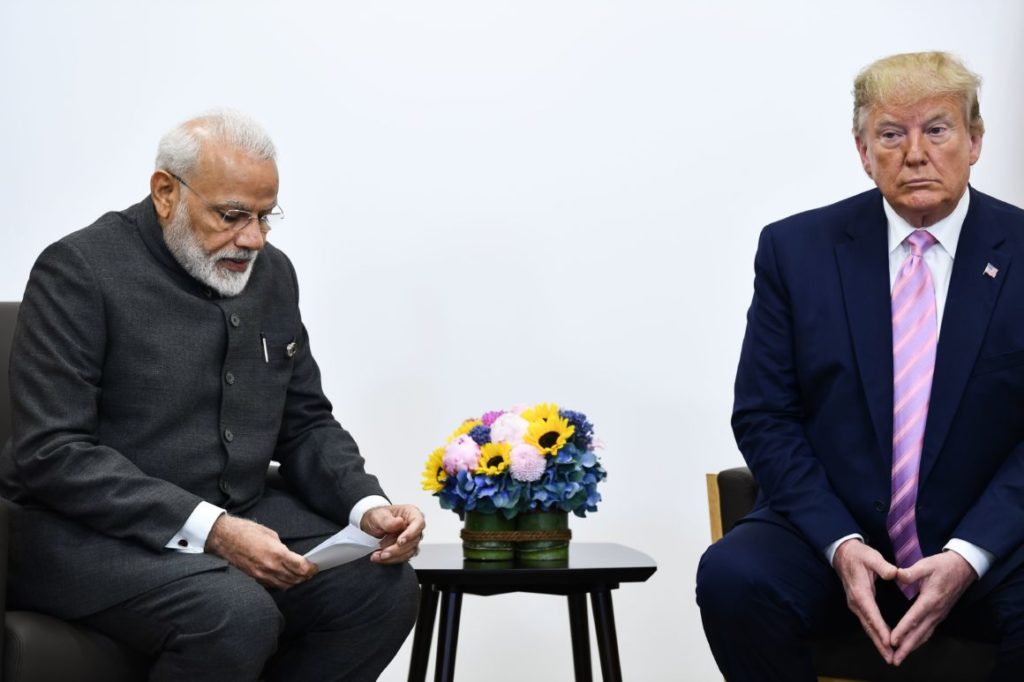
Interestingly, President Donald Trump offered to mediate on the decades-long Kashmir dispute between India and Pakistan, a move that could signal a shift in long-standing US policy that the issue must be solved bilaterally. “If I can help, I would love to be a mediator,” Trump said. “If I can do anything to help, let me know.” However, soon after US State Department defanged Presidential wish on mediation by stating that Kashmir was a bilateral issue. Indian newspaper The Hindu reported on July 23:
“The Trump administration has launched a damage control exercise after the President’s remarks about mediation on Kashmir, with the State Department on Tuesday [July 23] saying it was a “bilateral” issue between India and Pakistan, and the U.S. “welcomes” the two countries “sitting down” for talks.” It also said Pakistan taking “sustained and irreversible” steps against terrorism is key to a successful dialogue with India. “While Kashmir is a bilateral issue for both parties to discuss, the Trump administration welcomes Pakistan and India sitting down and the United States stands ready to assist,” India has already rejected Mr. Trump’s claim that Prime Minister Narendra Modi sought his mediation on the Kashmir issue On Monday [July22], Mr. Trump stunned India by saying that Prime Minister Modi, during the G20 summit in Osaka, Japan, sought his help in resolving the Kashmir issue. “I was with Prime Minister Modi two weeks ago and we talked about this subject (Kashmir). And he actually said, ‘would you like to be a mediator or arbitrator?’ I said, ‘where?’ (Modi said) ‘Kashmir’,” “Because this has been going on for many, many years. I am surprised that how long. It has been going on (for long),” “I think they (Indians) would like to see it resolved. I think you would like to see it resolved. And if I can help, I would love to be a mediator we have two incredible countries that are very, very smart with very smart leadership, (and they) can’t solve a problem like that. But if you would want me to mediate or arbitrate, I would be willing to do that. So all those issues should be resolved. So, he (Mr. Modi) has to ask me the same thing. So maybe we’ll speak to him. Or I’ll speak to him and we’ll see if we can do something,” Mr. Trump said.” Mr. Khan welcomed these remarks. “President, I can tell you that, right now, you would have the prayers of over a billion people if you can mediate and resolve this issue,” he said.”
In New Delhi, The Ministry of External Affairs was quick to deny that Mr. Modi ever asked for a mediation on Kashmir. “We have seen [Mr. Trump’s] remarks to the press that he is ready to mediate, if requested by India & Pakistan, on Kashmir issue. No such request has been made by PM Narendra Modi to US President,” said MEA spokesperson Raveesh Kumar. Asserting India’s current stand rejecting any third party mediation on the Kashmir issue, Mr. Kumar said that “it has been India’s consistent position that all outstanding issues with Pakistan are discussed only bilaterally. Any engagement with Pakistan would require an end to cross border terrorism,” referring to the agreements between India and Pakistan to resolve issues between them, as they did in the Shimla agreement of 1972 and the Lahore declaration of 1999.
The media and Twitterati in India bashed Trump over his claims that Indian Prime Minister Narendra Modi had requested him to act as a mediator on the Kashmir issue. As soon as the news broke, the country’s media outlets branded Trump “a liar” while dismissing the conversation that Trump claimed took place between him and Modi on the side-lines of the G20 Summit in Japan as a fabrication. Indian news outlets deemed Trump’s comments to be another addition to the long list of faux pas that the US president is prone to making. Twitterati also jumped on the bandwagon with #TrumpKashmirLie becoming the top Indian trend on the micro-blogging site.
Notwithstanding, indeed, Trump Administration had recently gone a couple of steps ahead, as compared to its predecessors’, in supporting India’s fight against terrorism. In the immediate aftermath of the Pulwama attack, the White House supported India’s right to self-defence. And in the middle of the election season in India in May, the Trump Administration ensured that alleged 26/11 mastermind Masood Azhar is designated by the United Nations Security Council. The US exerted severe pressure on China, which for about a decade vetoed against any such move. Trump’s instant expression of pleasure over Hafiz Saeed’s arrest must have been nothing short of a sweet melody to Modi’s ears. To look even handed and make the summit a success, the US agreed to a longstanding demand of Pakistan by declaring Balochistan Liberation Army a terrorist outfit.
Besides other members of delegation, PM was also accompanied by the Army Chief. While Prime Minister remained in the media glare, Army Chief did most of the background heavy lifting with Pentagon for fine-tuning of mutually agreeable strategy for the US troops withdrawal from Afghanistan and restoration of routine military aid and cooperation. And with regard to the latter item, his platter was full ranging from: release of withheld payment of Coalition Support Fund; resuscitation of abandoned sale of 8x F-16s alongside a long list of other military gears; restarting of cross training visits; and restoration of suspended military aid and supplies etc. Not much has come to public glare with respect of success or otherwise of this aspect of the summit. Though at least a part of the wish list must have accomplished, one has to wait for the official version. The COAS also met with Acting Secretary of Defence Richard Spencer and the Chief of Staff of the US Army General Mark A Milley. General Milley had made a recent assertion that the US needs to maintain strong military ties with Islamabad due to the shared interests of the two countries. Army Chief and the acting defence secretary discussed the regional security situation including the Afghan end game. Both, the secretary and the CJCS, acknowledged Pakistan Army’s contributions in the war against terrorism. The huddle also elaborated on matters related to security and bilateral military cooperation.
Just prior to the visit, the White House issued a ‘fact sheet’ highlighting the depth of bilateral relationship, stating that:
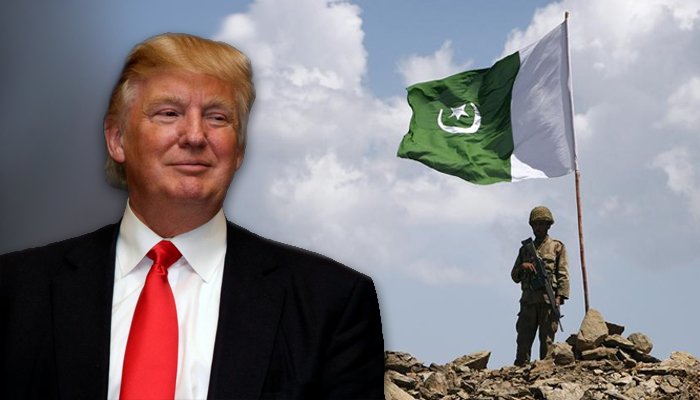
“President Trump wants to work with Pakistan to achieve peace, stability, and economic prosperity in the region. President Trump is working to strengthen cooperation with Pakistan on issues that are vital to the peace, stability, and prosperity of the South Asia region. President Trump has made clear that he wants to see peace and stability in the region. The US president acknowledges the initial steps Pakistan has taken to improve regional security and counter terrorism. Pakistan has made efforts to facilitate the Afghanistan peace talks, and Islamabad will be asked to further enhance its efforts. The path to a strong and enduring partnership between Pakistan and the United States lies in working together to find a peaceful resolution of the conflict in Afghanistan. Pakistan has taken some steps against terrorist groups operating within Pakistan. It is vital that Pakistan take action to shut down all groups once and for all. The United States and Pakistan enjoy a strong economic partnership that benefits both of countries. The United States and Pakistan set a new record for bilateral trade in 2018 of $6.6 billion. United States exports to Pakistan reached a record high of $2.8 billion in 2018, supporting approximately 10,000 American jobs. The United States is the largest export market for Pakistan’s goods. Our trade relationship with Pakistan has been especially beneficial for American farmers. The United States exported $1.4 billion in agricultural products to Pakistan in 2018. Over the past 15 years, the United States has been one of the top five investors in Pakistan. American energy producers are seeing more and more business opportunities with Pakistan. American companies are incorporating cutting-edge technologies into energy projects throughout Pakistan. American companies have competed to win more than $3 billion in energy-related business in Pakistan. Pakistan has purchased extensive amounts of American liquefied natural gas (LNG), including 22.8 billion cubic feet of LNG from March 2017 to April 2019. ExxonMobil reestablished its presence in Pakistan in 2018 after 27 years and is working to increase LNG imports”.
Imran and Trump affirmed their resolve to work together across a broad range of areas and acknowledged the immense opportunity and potential for mutually beneficial collaboration in diverse fields such as trade, investment, energy, economic connectivity, and defence and security cooperation. PM invited the US corporate sector to invest in Pakistan.
While commenting on economic prospect of the summit, Abdul Qayyum Kundi wrote:
“Pakistan’s focus has always been to attract foreign government money as it is easy to acquire and does not require deep structural reforms. It serves the interests of our ruling elite as they are the key beneficiaries of these public funds. Foreign Direct Investment (FDI), on the other hand, will not come to Pakistan until we amend our ways and improve our governance. It is the only way to create employment and grow the economy on a firm footing. The summit was a failure in that sense as no major investment commitments were made by the US corporations”.
During his address to select members of the US Congress, the premier told lawmakers that the entire country and the Pakistani armed forces are on the same page to achieve a peaceful solution to the Afghan conflict. He also reiterated Pakistan’s sacrifices in the 15-year war on terror. “More than 70,000 Pakistani people died and our economy suffered billions of dollars lost in the war against terror. Pakistan fought the US war of terror even though we had nothing to do with 9/11, al-Qaeda was in Afghanistan and there were no militant Taliban in Pakistan,” he said. “Pakistan is misunderstood here, specifically in the last 15 years when the war on terror was being fought in Afghanistan and on our borders,” he added. He said that bilateral relations between both countries were going forward, and this traction must be based on “mutual trust”. Congress persons appreciated the role Pakistan is playing especially in the Afghan peace process, stating the premier had made history by proposing a solution to the lingering Afghan issue. They also lauded PM Imran’s endeavours for maintaining peace in the region, while also accepting Pakistan’s sacrifices in the war against terror and militancy. The lawmakers also presented a copy of the Special Resolution introduced in the Congress to welcome Prime Minister Imran Khan’s inaugural visit to the USA to reaffirm the continuing support and commitment to the long and enduring friendship between Pakistan and the US.
While speaking at the United States Institute of Peace on the PM said: “We would like to have a relationship based on mutual trust, as equals, as friends and not as before when Pakistan wanted aid and in return it was asked to perform certain tasks for the US,” said the prime minister. Prime Minister Imran said that he hated the idea of asking for funds not just from the US but from any other country. “Because, aid has been one of the biggest curses for my country. what it has done is, it has created the dependency syndrome,” he remarked. “I would like to have dignified relationship with the US, where never again should we have this humiliating phase. I can tell you as a Pakistani, never did I feel more humiliated when Osama bin Laden was taken out in Pakistan by the US troops. He said that a Taliban delegation wanted to meet him a few months back but he did not because of opposition from the Afghan government. “Now I will meet the Taliban and I will try my best to get them to talk to the Afghan government,” he said, adding that he has gained their trust for professing right from the first day that the issue could only be resolved through dialogue.
While meeting US Secretary of State Mike Pompeo, PM said that a strong Pakistan-US partnership is vital to promotion of mutual interests of the two countries as well as broader regional peace, stability and prosperity. “A peaceful and stable Afghanistan is vital for Pakistan,” said the premier. As part of his policy of “peaceful neighbourhood”. He underscored various initiatives taken to advance this objective with regard to India. The premier underlined that the peace dividend for both countries would be enormous with peaceful resolution of all outstanding disputes and would usher in an eras of peace, progress and prosperity in South Asia.
Given the apparent tensions in relations and deepening trust deficit between the two countries, it was not an easy chore to convince the American establishment for the Trump-Imran summit. The only possibility was if Pakistan could bypass the US bureaucracy and made a direct contact with Trump. That’s when the idea of using unconventional channel came. Pakistan then decided to approach the Saudi crown prince knowing his ‘close contacts’ with Kushner. Another figure that complemented those unprecedented efforts was Republican Senator Lindsey Graham, who is considered close to Trump. Graham had visited Islamabad in January and was ‘highly impressed’ with the ‘vision’ of PM for Afghanistan and the region. Graham believes Trump and Imran had ‘similar personalities’ and they would surely go along well with each other. “If President Trump ever met Prime Minister Imran and he listen to what I have listen today, I think he will be far more enthusiastic about the region than he is today,” the influential Republican had told reporters after meeting Imran. Foreign Minister Shah Mehmood Qureshi stayed in touch with Senator Graham, who made a personal request to Trump for extending an invitation to the prime minister. The idea behind pushing for Imran-Trump summit was to have ‘candid and open’ discussions on some of the pressing issues facing both the countries and the region. Trump had linked the summit with substantial accomplishment of his strategy to bring the Afghan conflict to a close. Efforts to arrange the prime minister’s trip to the US began in December last year after Trump wrote a letter to Imran, seeking his help in facilitating the Afghan peace process.
At present Afghanistan this is the only point of convergence between the two sides and other than this Pakistan does not fit in anywhere in the bigger American ambitions in the East and the West of Pakistan. In the Middle East, the US is on the verge of a new conflict with Iran to appease Israel and boost prospects of Trump’s re-election in 2020. In the East, America has founded a potent quartet with Japan, India and Australia alongside a conglomerate of smaller states of East Asia to keep China bogged down in its immediate neighbourhood on account of historic perceptions and territorial claims. Beside America’s India appeasing Indo-Pacific hype, Pakistan also does not approve Trump’s approach towards Palestine. It has vehemently condemned shifting of US embassy to Jerusalem and offering money to Palestinian Authority in lieu of territories and foregoing two state solution.
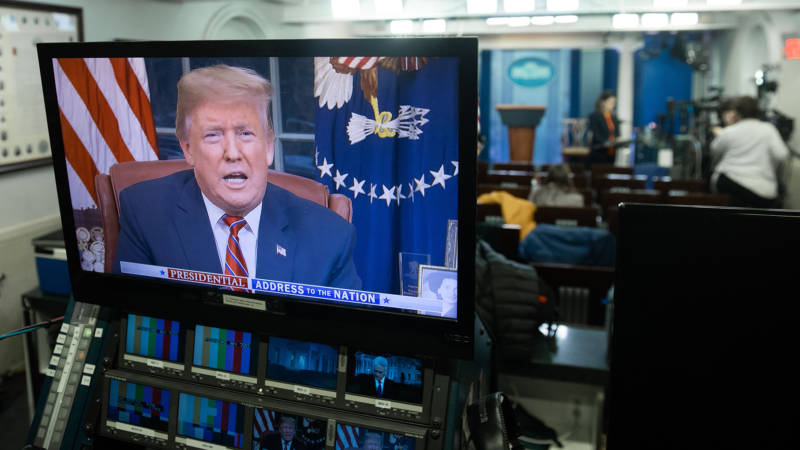
One aspect of President Trump’s personality is of a TV show star. As soon as cameras are turned on, he instantly morphs into a showman. Extravagant statements in press conferences generally do not translate into actual policy and there are plenty of examples to prove that. Despite tall claims, summit largely focused on Afghanistan. With the US led Afghan peace process nearing culmination, both sides seek to reset relations with a focus on expanding bilateral cooperation beyond Afghanistan-centred transactional relations. During extended discussions at the White House, two sides reviewed the points of convergence where cooperation could be mutually beneficial. Summit served the purpose of taking forward an environment of trust and cooperation. The good news is that bilateral relations will improve. But the bad news is that there will be no fundamental structural change in the relationship and it will remain transactional. America will demand do more and maintain high pressure for it through IMF, FATF, and financial support from other regional allies and institutions.


